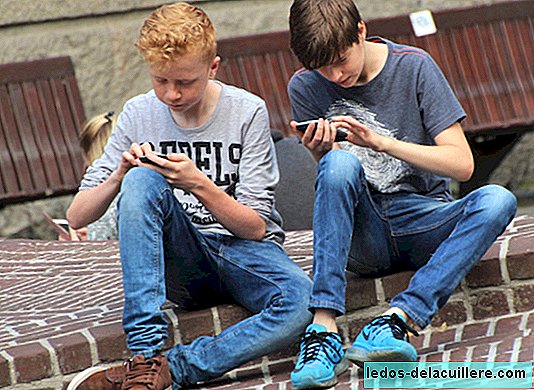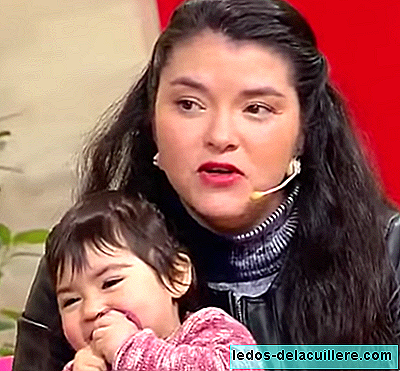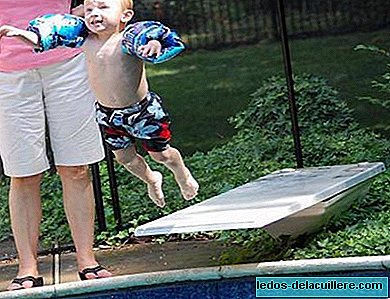The way we communicate has changed a lot in recent years and especially that of young people, who used to talk on the phone, then with Windows Live Messenger and chats, and now, especially with private chat programs of smartphones (WhattsApp, Telegram, Facebook Messenger, etc.).
When they talked on the phone there was no way of knowing what they were talking about unless you were close, but now communication between children and adolescents leaves record and just pick up your phones to know what they have been talking about.
The law says that this is prohibited, that parents can't look at our children's mobileHowever, today an interview with El Mundo has been published Emilio Calatayud, juvenile judge, and in it maintains that the children have to look at the mobile, yes, without getting caught. Hence the question that serves as a title to this entry. Should the law allow parents to look at our children's mobile?
What does the law say about it
Article 18 of the Constitution, in point 1, says that all persons have the right to privacy, including minors:
The right to honor, personal and family privacy and the image itself is guaranteed.
And the same article, in point 3 says that:
The secrecy of communications and, especially, of postcards, telegraphs and telephones is guaranteed, except by judicial resolution.
This means that, unless a judge says so, nobody can look at anyone's mobile To read your private conversations. Not even if it's a father who suspects something about his son.
Organic Law 1/1996 on child protection reflects what the Constitution says and adds that parents are the main actors in the process:
1. Children have the right to honor, personal and family privacy and their own image. This right also includes the inviolability of the family home and correspondence, as well as the secrecy of communications. 5. Parents or guardians and public authorities will respect these rights and protect them against possible attacks by third parties.
Finally, Organic Law 10/1995 of the Criminal Code, in article 197 "On the discovery and disclosure of secrets" says that:
1. Who, to discover the secrets or violate the privacy of another, without their consent, seizes their papers, letters, emails or any other documents or personal effects, intercept their telecommunications or use technical listening devices, transmission, recording or reproduction of sound or image, or of any other communication signal, will be punished by prison sentences of one to four years and a fine of twelve to twenty four months. 2. The same penalties shall be imposed on those who, without being authorized, seize, use or modify, to the detriment of a third party, reserved personal or family data of another that are registered in files or computer, electronic or telematic media, or in any other type of file or public or private record. The same penalties will be imposed on those who, without being authorized, access them by any means and who alter them or use them to the detriment of the owner of the data or a third party.
The law is clear: parents do not have the possibility to monitor what our children say without violating the law.
And shouldn't we have legal protection in these matters?

That is what Emilio Calatayud says, that we parents have to do it, just as our parents used to look at our drawers. I quote the question and the answer textually, so that the context is understood:
75% of people the first thing they do when they get up and the last thing before bedtime is to look at the mobileI'm going to tell you something: I have girls hospitalized because one day they were punished without a cell phone and they mistreated their mothers with serious injuries. Mothers with a broken nose. And two with suicide attempts to be without mobile ... I think we must violate the privacy of our children. Before, our parents searched the drawers, now we have to look at what they do with the mobile ... The case is that they don't catch us.
What we read here is a judge encouraging us to skip the law. I put myself in the position of a son, whose mother probably checked her things on occasion, with the excuse of "I was ordering you" and, although I had nothing to hide, I never found it funny: What trust relationship were we supposed to have if I had to spy on me?
This is the question. If we have to "violate the privacy of our children" we have done something wrong, or very badly. Calatayud speaks of girls who have broken their mothers' noses for being punished without mobile phones, and uses it as an argument to allow parents to violate a law. If the parents had spied on these girls' cell phones, they would have been exemplary, kind and respectful teenagers? Not at all ... they are interned for that, but if the aggression had not been on the mobile, days, weeks or months later it would have been for something else: for not giving them money to party, for not buying them a motorcycle, for not making food hot enough or for coming home and not having folded clothes.
It is not the mobile. It is not spying or not. Is the education that a teenager has been given (or has not been given), is the environment in which he has lived, is ... It is a sum of a lot of mistakes or circumstances that lead a child to become a terrible teenager.
And no, it is not a matter of hitting them, as he also explains in the interview when he says that today it is more difficult to be a father because "We do not have the authority. Zapatero took it from us: the right to reasonedly correct our children was abolished in 2007. And the Mariano has not put it", but to educate children well to pass them rules and values. Or perhaps the teenagers he talks about nobody hit or punished?
What Harvard psychologists recommend to educate children
Not even two weeks ago we published an entry that collected all the advice that Harvard psychologists offer parents, based on evidence, about what parents have to do to educate their children well.
Curiously (or perhaps not so curious, but simply obvious), at no time are parents urged to check our children's mobile and at no time are we told to punish them or hit them when they do something wrong.
Yes they tell us that let's be a valuable example for them, that we talk a lot, that we have a relationship of loving care with them, sharing space and time and that we transmit the values of equity and justice, even when that makes them angry because they, at that time, do not seem fair; They also say that we have to help them to be kind and grateful, that we help them to be empathic with the close and not-so-close people and let them give their opinion, be critical and make decisions. In addition, they suggest that we help them to express their emotions, to know them, and to develop self-control, so that they are able to manage their most negative feelings by giving an adequate response.
All these tips have an end: to educate children to be responsible and communicative, friendly, close, critical and motivated teenagers and adults to make this a better world.
Because if this is done, if the parents are involved in education, then no one will have to walk like a criminal looking at their children's cell phone. It won't be necessary because there will be confidence and the children will have a freedom and autonomy according to their age, their critical capacity and their acquired values.
Come on, as we all do with our partners. I would never look at Miriam's cell phone because I blindly trust her. If one day I lost that confidence and I did, I would have such a big problem, so important, the relationship would enter such a dangerous phase, that instead of looking at your mobile what I would have to do is talk to her.
Photos | iStock, Skinny Casual Lover
In Babies and more | Do you know what your children are seeing right now on the net? A shocking (and creepy) campaign, Parents who do not control their children online can be fined, "Pedophiles use social networks to contact children." Interview with Carlos Igual, Captain of the Civil Guard












